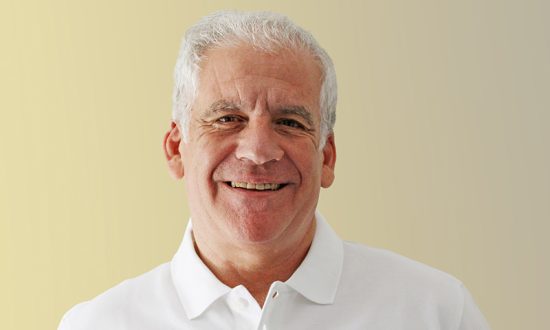Gustavo is a Forest Engineer from the National University of Santiago del Estero and has a Ph. D. in biochemistry from the National University of Rosario. He is an entrepreneur in biological sciences and Ag-technology. After his postdoctoral studies in The Ohio State University, he started different companies in Argentina with the support of investors from the US and Argentina. He has led INBIOAR since its foundation in 2010 with capital partners. He teaches plant biochemistry at the University of El Salvador, and he has been a tutor of MS. and Ph. D. students. He is a consultant and mentor of technological Startups.
In an exclusive interview with CXO Outlook Magazine, Dr. Gustavo Sosa shares his insights on the global trends taking place in the crop protection industry, the mission and vision of INBIOAR, pearls of wisdom for the aspiring AgTech leaders, and a lot more. Following are the excerpts from the interview.
According to you, how has the agricultural industry, being the oldest and traditional industry, evolved over the last five years? What role has technology played in its rapid transformation?
I think that one of the most dynamic sectors was the crop protection in the biological area. Synthetic or traditional chemicals are not being developed or not released in the market. The GMO released are resistant against the very well-known old chemicals. But the biologicals are really playing a role in the new model of the agriculture where the environment and the safer food production is a very important task. Perhaps in the past to kill the pest was the primary objective. But now on that bases of the previous agriculture we are thinking in safer and cleaner agriculture using natural-biological products.
Biotechnology is helping to develop new product in a faster way that we never imagine. New small companies and spin off are rising bringing specific know how to use those chemicals that the academic sector has in the papers or are developing new crop protection compounds from different sources, like plants and fungus.
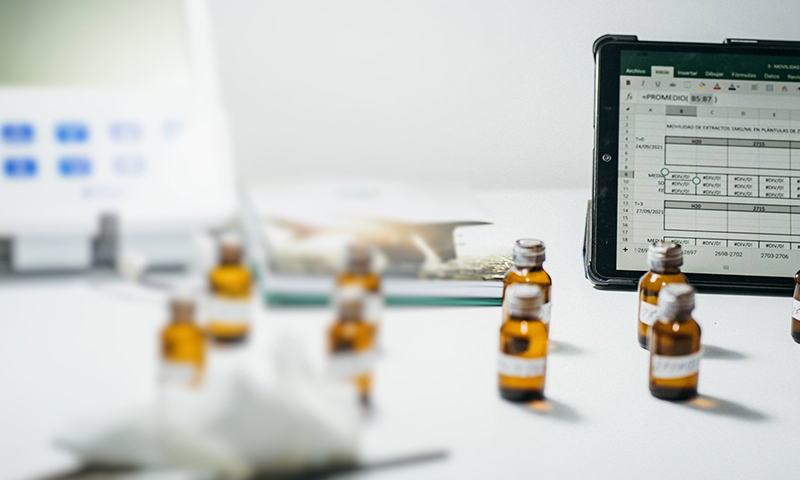
Please share your insights on the global trends in the crop protection industry. What does its future look like to you?
The environment is part of the economic equation. We can’t diminish the capacity of the environment to produce. If we contaminated the whole area (the environment) that is the area we use to produce food, the contamination of the fresh vegetables is a consequence of the work in the field. What is bad in relation with the synthetic chemicals? It is the degradation time. What do we expect from a biological? Well, the answer is very simple: it has not sense that a weed once killed has still the herbicide applied in the soil for many months until it is not detected. Once the weed is killed the herbicide must disappears from the soil.
It means that the toxicity of both synthetic and biological are equal now to kill the weed. But the time in the environment is different once the effect to kill the weed was done.
I think a safer, cleaner, and environmentally friendly agriculture is possible. That the biologicals coming in the following years will help us to change the model from the synthetic crop protection to the biological crop protection. But at the same time, we must think in a whole, not in a particular concept. As I mentioned the synthetic chemicals were good to kill pest, but the contamination was a non-desirable secondary effect. We now ask to the control of pest not only to kill the weeds, but also to care the environment while the food is cleaner. It would seem possible to do that. But again, secondary effects will rise, and we have to be aware of them.
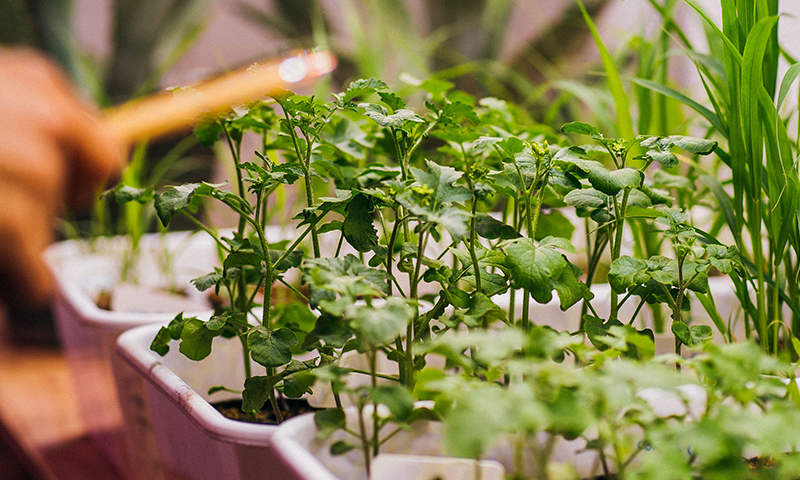
Dr. Sosa, please tell us about your professional/personal background.
I am originally a forest engineer so that the environment in my ideas is always there. My major was plant physiology. I later did my Ph. D. in plant biochemistry and molecular biology. My post doc was in cell physiology and regulation of the gene expression. That background allowed me to think in startups and find my way to consolidate my company.
What is INBIOAR, its mission and vision?
INBIOAR has the chance to be a player in the global crop protection industry bringing new natural chemicals to control pests. We work in the direction to obtain natural products for a safer agriculture. We are an R&D company; we do not produce. We are always talking with the global industry to transfer our technology to them. Today, we are in the process of transfer four prototypes that we have. Three prototypes are herbicides, and one is an elicitor-fungicide.
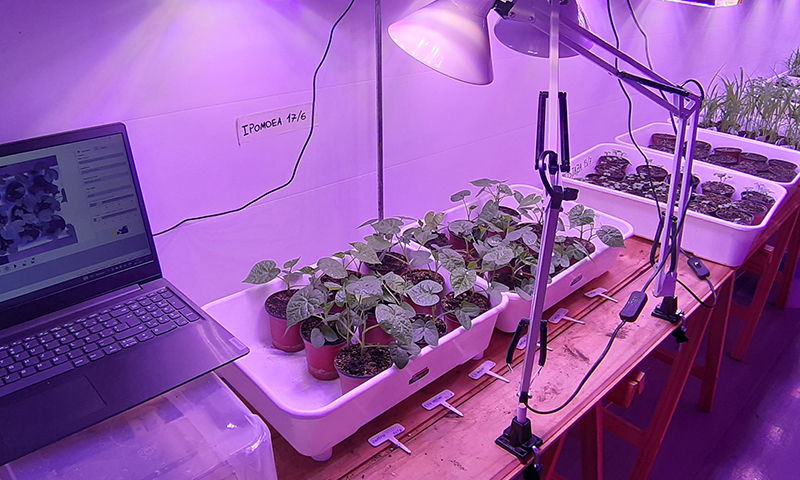
In what ways is INBIOAR revolutionizing the crop care industry?
We face a very well know concept that plants kill plants. In many natural areas is possible to see how good some species make boundaries so that other species cannot use the same soil. That is very well know from the first men in the agriculture in Egypt. What we did was to standardize a method to screen the flora in the field finding plants “fighting” for the space. We later support the field work with the lab work selecting the best plant extracts with the best ability to kill weeds at the lowest concentration. We are today 12 years old so that we have defined our method very well. That know how allowed us to offer our capacity to other companies and to apply our method in other new regions. At the end we have a method that is addressed to find plants as a factories of natural crop protection active ingredients.
As the Founder & CEO of a biotechnological R&D company, what type of challenges do you face and how do you overcome them?
Never a good idea, no matter how good it is, is welcome. Never. Thus, the first challenge is to find the financial support for a project and translate the biological concepts in business and later to share this business with the investor sector. As a scientist I had to acquire a new language to speak with investors and businesspersons from the industry. It was amazing to transform a biological concept in a business opportunity that need funds to be a company later. That process was very unique for me, and I gain a lot of experience in different areas far from my lab bench. The way to overcome it was very easy: never give up.
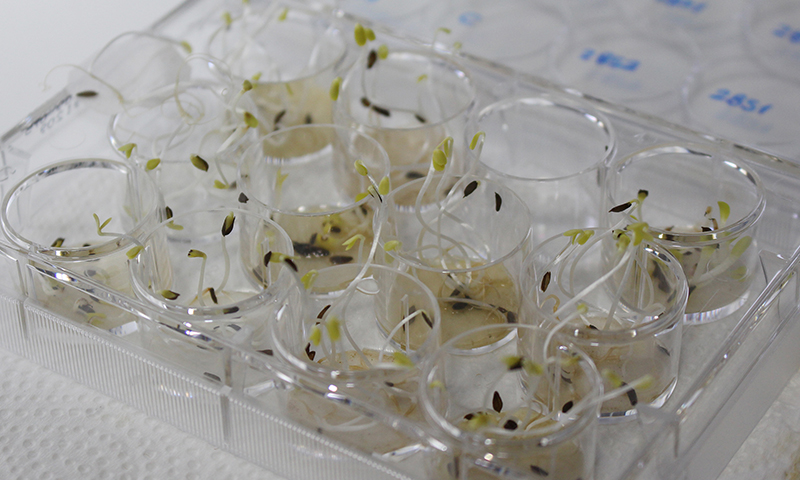
You teach plant biochemistry at Salvador University in Buenos Aires. What fascinates you the most about this subject?
I focus to teach behind the books. That means that my lessons are about the academic topic and about for what it is taught. What is the sense a student must learn about that topic. For what he or she is taken the lesson. I used to say I teach applied plant biochemistry, not just plant biochemistry to students of agronomy. The idea is welcome by my students and many of them visit my lab as visiting students. I have then the beautiful chance to learn from them and I invite them to do the Ph. D. in my company. I enjoy a lot seeing how good scientist they became.
In your experience, what do you think makes a great leader?
Listen to others. Today’s leaders are “team assistants”. My idea of a leader is a person that makes the team goals are always reachable. It starts from the beginning finding the right person to do the right work. The second level of complexity is that between them exist a good environment to work. I save that problem asking to all of us to participate in the interview of someone new. Beside that we have the chance to work with a potential candidate before someone is joining us. The great leader is measured by the great team. The team is the goal of any modern leader, not the leader. In the actual companies I think in a leader in a secondary roll. The core is the team.
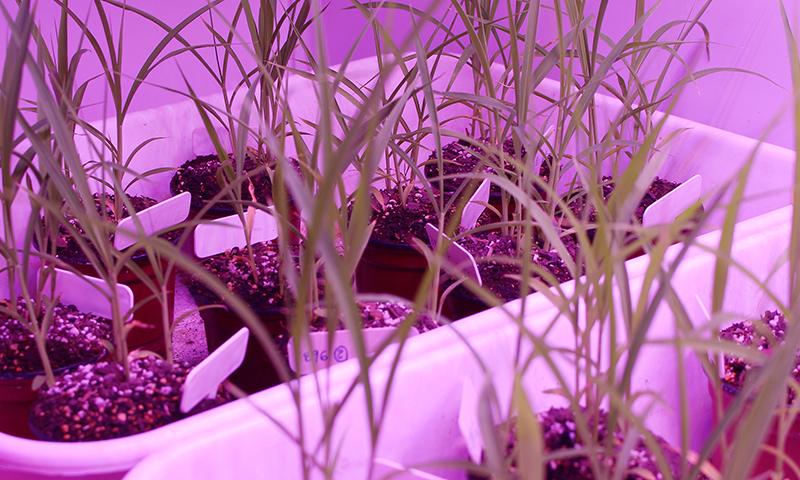
Tell us an example of a specific memorable work you did that is very close to you.
We are a 12-year-old company so that there are many memorable moments. But all are related with the team. The moment that a student tells you that he or she likes to join to your team I find that moment as memorable. The first student I offered the position to work with me from where we grow and still is here in my lab was a memorable moment. Because the people is who make de difference and work in a team like INBIOAR is makes memorable a lot of things. My investors: any time I have asked them a hand to save something I received two hands. If both hands were not enough, then they found ways to help with other hands. I work in a privileged company that I built thanks to many other persons who believed in the project. What can be more memorable than this?
Who is the one person you look up to and why?
We focus on self-motivated persons, with great humor sense, smart as many others, persons who never give up. Persons to whom a mistake make them laugh of themselves and not turn angry. Anytime we interview someone we focus on that characteristic. Creativity comes from those places. Discipline, academic outstanding, excellence are the bases, but it is not only the bases, we need more in a small company where there is not room for mistakes if you plan to keep happy your investors.
Being someone that knows the ag-tech industry very well, what would you say to aspirants who are considering a move into this industry?
The industry is growing and is a very modern industry. In the following decades will be new challenges and new developments. I will ask them to find the new doors to be opened for new global business. To keep them wheeling is another issue but start the new business at global level is the work for the new guys in the business.


